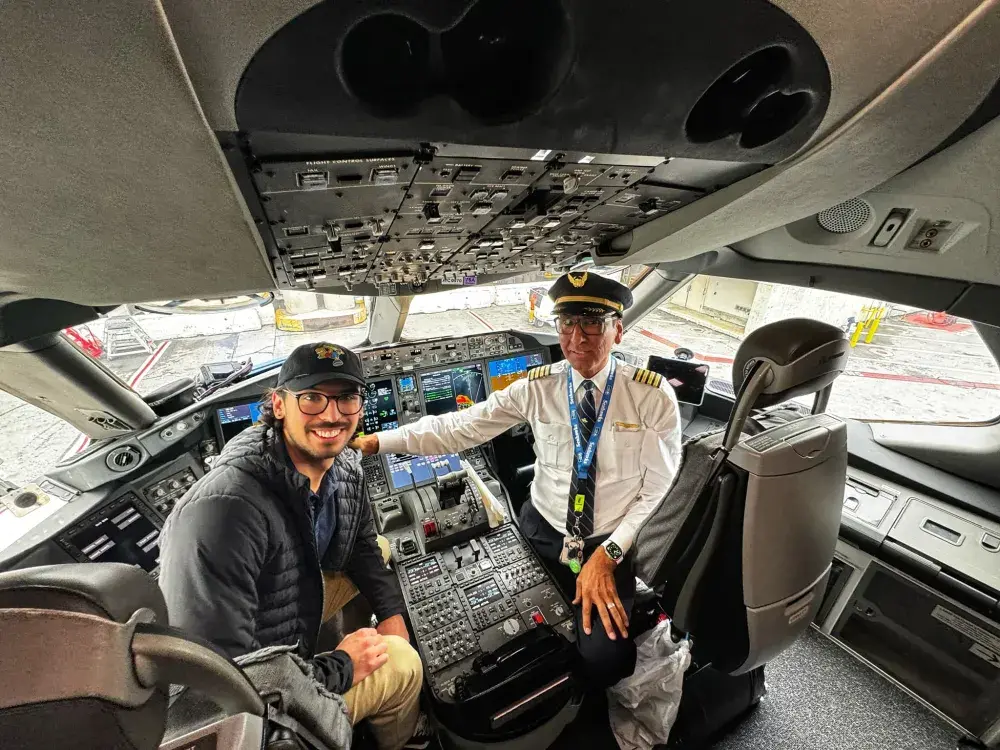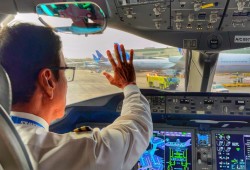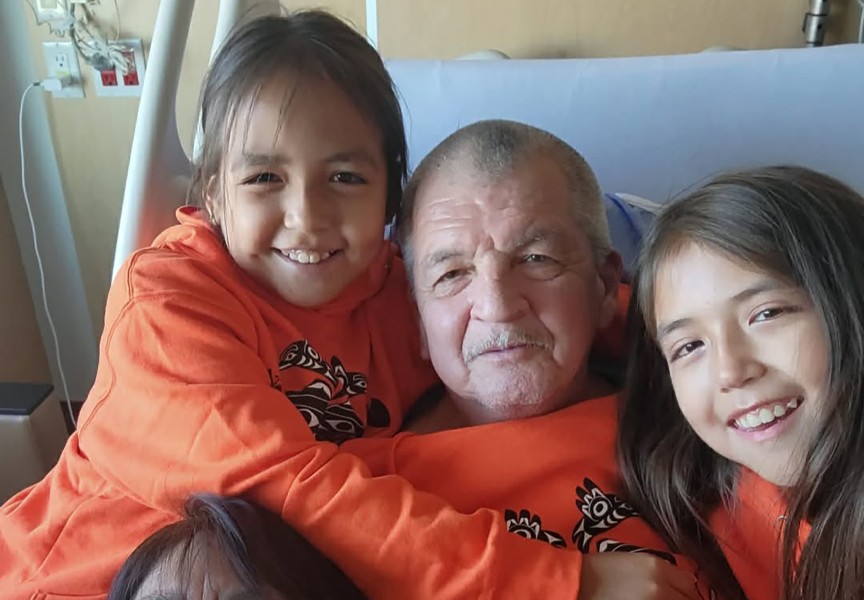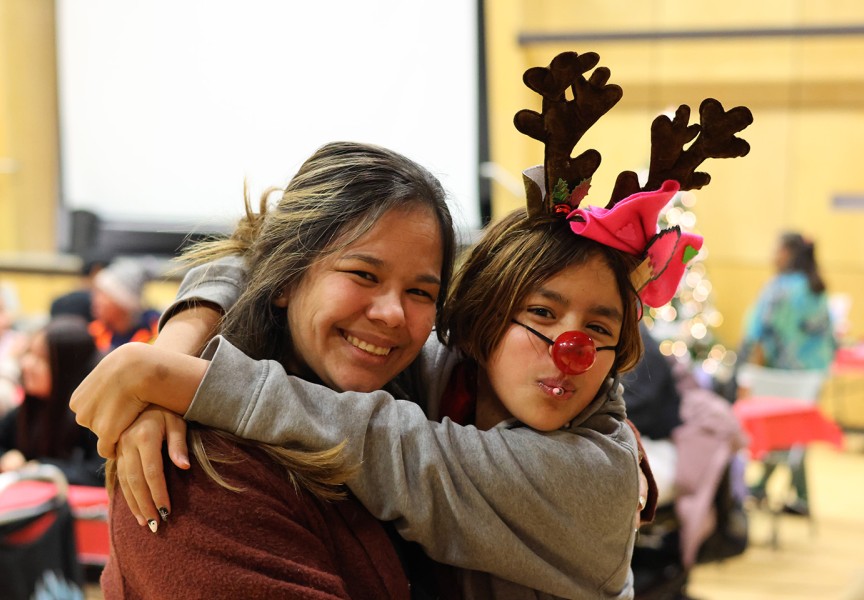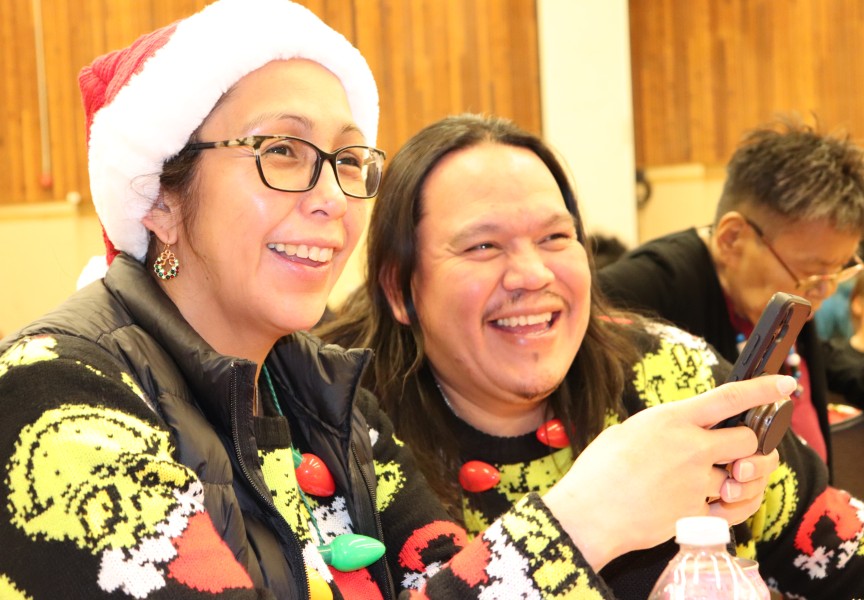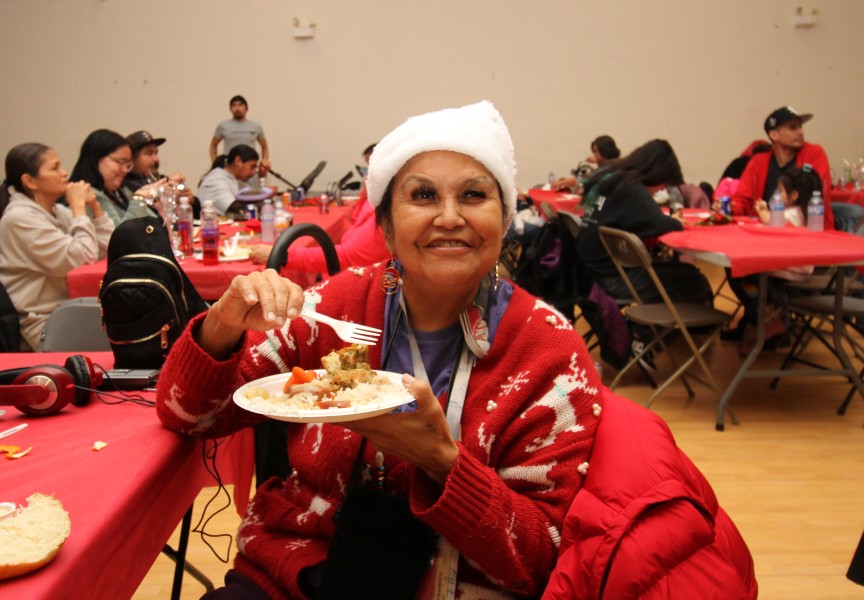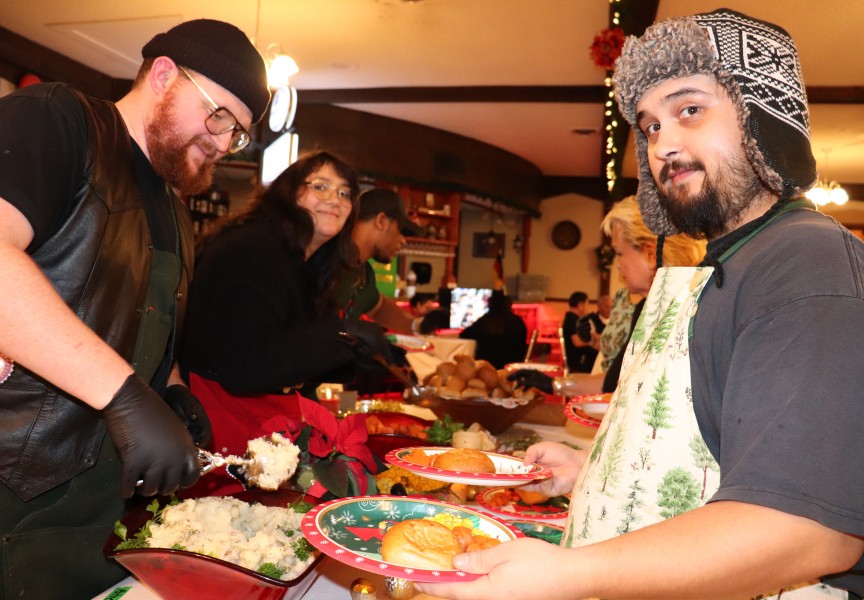Wallace Watts of Tseshaht spent his 38-year career as a commercial pilot for United Airlines traveling the globe visiting countless places every week. He received two awards for preventing a plane crash on two different occasions and was one of the first Indigenous pilots to get hired by a commercial airline.
From hiking Mount HuaShan in China, the world's deadliest hike, to biking in the jungles of Singapore, to his countless visits to Paris and Rome, exploring different streets, restaurants, and art galleries, the combination of Watts’ love for aviation and a passion for travel made for a memorable career.
“It's pretty much allowed me to do everything I've ever wanted to do, see everything I've wanted to see, [and] taste everything I wanted to eat,” said Watts. “Looking back, I was really thoroughly blessed to be able to fly that much and see the entire world.”
Watts was only 15 years old when he started learning to fly at an old airport down the road from Tseshaht’s main reserve in Port Alberni.
He recalls the impacts and horrors of the Alberni Indian Residential School (AIRS) in his home community back when he was a teenager in 1974, a year after the school's closure.
“When I grew up… there was a lot of drinking and I could see myself going down that path,” recalled Watts.
One day Watts was watching James Bond, who was dressed in a tuxedo, drinking a martini, surrounded by beautiful women.
“I need to see the world and get the heck out of here,” Watts recalled telling himself.
At the time he had read about pan-American pilots and decided to bike to the old airport.
That was when he started to work towards his flying license, learning to operate a Cessna 150, a two-seat tricycle configured airplane used for training.
“I got really addicted to flying,” said Watts. “I was just amazed at aviation and how you can go up and fly with the birds.”
Watts flew every day, eager to finish his flying license so he could move on to the next level.
He recalls when him and his instructor watched a Boeing 747 airplane, known as the queen of the skies, fly overhead.
“I said, ‘One day I want to be a captain of that plane’,” said Watts. “[His instructor] said, ‘You’ll never do it because they don’t hire brown people’.”
But Watts was determined and ultimately proved his instructor wrong by becoming one of the first Aboriginal pilots to be hired by an airline.
“I walked into a room of our flight planning, it was all white men,” said Watts. “They all stopped and looked at me and I thought I forgot to put my clothes on because they were all staring at me.”
“I just walked right in,” he said. “I just didn’t care.”
The pilot reflects on the need for determination in not letting “anything stop what you want to do.”
“When I started flying nobody wanted to hire a brown person,” said Watts.
The highlight of his career was accepting two awards for preventing a hull loss, an aviation term for plane crash.
“One was a cargo fire… and the other one, we were accidentally overloaded,” recalled Watts. “The planes almost crashed, but due to the actions of myself and my crew members, we were able to save the airplanes.”
Watts shared that every nine months, as a pilot, he is required to go through training and testing. Most pilots never actually face in real life situations what they are trained and tested for.
“When that situation comes [and] when it all works out, it's really rewarding,” said Watts.
Four hours into a flight from Sydney, Australia to San Francisco, the cargo fire light went off. Watts was trained in handling a cargo fire, but when he and his crew followed procedure to extinguish it, the fire kept burning.
Next, they contacted their dispatch.
“We were right beside a runway, but it was too short for us to land so we had a choice of three other countries to land in,” recalled Watts.
Dispatch directed them to land at Pago Pago International Airport in the Samoan Islands. Their avionics began to overheat as they lost instruments, radios, and eventually lost contact to dispatch, he said.
When they eventually landed, Watts recalls the head of the Samoan army, who had a couple drinks and was in possession of a machine gun, ordered everyone off the plane.
“One of my co-pilots [said] ‘Hey, we’re just [going to] be here a couple hours then we're [going to] leave,” recalled Watts. “He pushed my co-pilot [and] he [said], ‘This is my country, you don’t come to my country and talk to me that way’.”
“’This is my airplane now’,” Watts recalled him saying.
But the drunk officer eventually fell asleep, said Watts. The crew and passengers boarded the plane and departed for Honolulu.
In another instance, a DC-10 Freighter departing from Los Angeles was overloaded by almost 40,000 pounds over the maximum take off weight.
In an attempt to weigh asparagus, the system was switched from pounds to kilograms. For the remainder of the cargo, they weighed items to be boarded in kilograms.
“We barely took off,” said Watts, sharing that at the time they had no idea why. “We rotated [and] we almost crashed at the end of the runway.”
“We started burning a lot of gas, and when we landed we still didn't know why,” he continued. “We found out later that day that we were heavily overweight.”
In these two most unusual events from his career, training and experience helped with the problem solving that was needed in the moment. Unlike the excitement of navigating emergencies, Watts also enjoyed calm moments in his career during layovers in different cities.
“For a long time, my favorite city was Paris,” said Watts. “When I kept going to the same place that I liked, I just keep going down different streets, and going to different art galleries and eating at different places.”
Watts said he would get up in the morning to watch sunrises, and stay up at night to watch the sunset.
His most memorable layover was in 2020 in Amsterdam, after flying a cargo flight. He rented an electric boat and drove it down all the canals that weave through the city.
“It was dead quiet,” he shared. “It was a clear sunny day and you could hear the birds chirping; normally in big cities all you hear is cars driving.”
According to the Airline Pilots Association (ALPA), the upper age limit for a commercial pilot is 65, which has forced Watts into retirement, though he is certain he will be flying again.
“The US government is going to increase the age of retirement from 65 to 67, and I'm just sitting at home waiting for the government to sign the bill to do it,” said Watts. “I might be able to go back to work.”
But, since his age does not limit him from operating private jets, he plans to continue to fly regardless.
“I never think everything is ever over,” said Watts, whose last commercial flight was to Tahiti on Dec. 15. “I know I'm [going to] keep flying; I'm never going to give up.”

